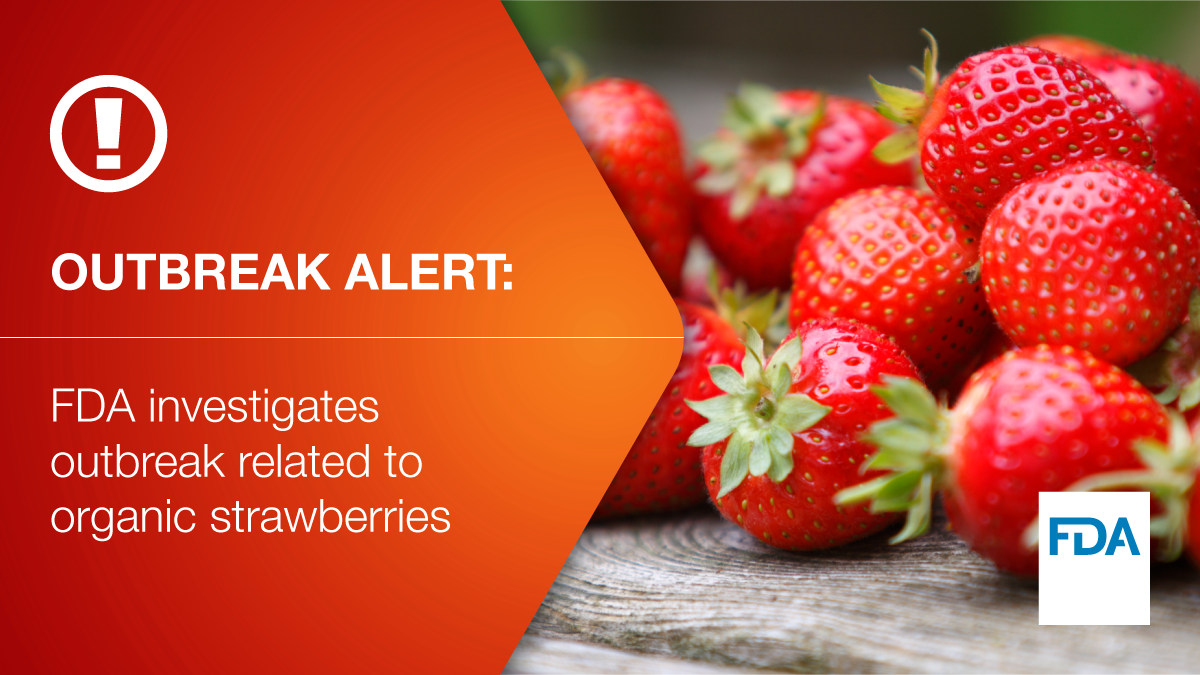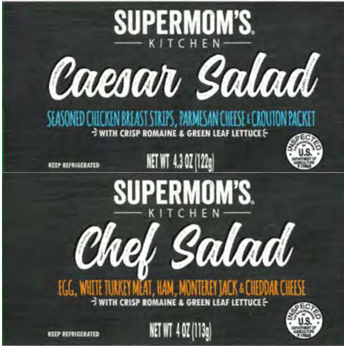The FDA reported that the contaminated strawberries were imported from Baja California (Northern Mexico), branded FreshKampo and HEB by their supplier. They were purchased between March 5, 2022, and April 15, 2022, and are all past their expiry. As of June 7, 2022, the CDC reported one additional case related to the outbreak. This outbreak includes a total of 18 illnesses and 13 hospitalizations. Most cases (16) are in California, with one in MN and one in ND. @ https://www.fda.gov/food/outbreaks-foodborne-illness/outbreak-investigation-hepatitis-virus-strawberries-may-2022?utm_medium=email&utm_source=govdelivery
ruth
Do not eat, serve, or sell imported FreshKampo or HEB brand organic strawberries purchased between 3/5/2022 – 4/15/2022. FDA’s investigation is ongoing.
ruth
The USDA/FSIS reported on June 9, 2022, that Northern Tier Bakery, LLC (St. Paul Park, Minnesota) recalled approximately 905 pounds of ready-to-eat (RTE) salad products that may be adulterated with Listeria monocytogenes. The salads were produced from May 18, 2022, through June 8, 2022. These items were shipped to retail locations in Minnesota and Wisconsin. The problem was discovered when the company product sampling resulted in a positive for Listeria monocytogenes. There have been no confirmed reports of adverse reactions due to the consumption of these products. @ https://www.fsis.usda.gov/recalls-alerts/northern-tier-bakery-llc-recalls-ready-eat-salad-products-due-possible-listeria
ruth
CORE response team reported that an outbreak of E. coli O157:H7 was added to the CORE table. The related product is yet unidentified. For the outbreak of Hepatitis A linked to strawberries from Mexico, a remote Foreign Supplier Verification Program (FSVP) inspection has been initiated. For the outbreak of Listeria monocytogenes in a not yet identified product (Reference # 1057), the total case count increased from 20 to 21. @ https://www.fda.gov/food/outbreaks-foodborne-illness/investigations-foodborne-illness-outbreaks?utm_medium=email&utm_source=govdelivery
The following is a list of outbreak and adverse event investigations primarily being managed by FDA’s CORE Response Teams.
ruth
The FDA reported that F&S Produce (Vineland, NJ) recalled a limited quantity of Protein Power Snack because it contains a cup of 0.75oz JIF peanut butter which could potentially be contaminated with Salmonella. Protein Power Snack was distributed at US Walgreens stores in NJ and NY. The product has since been pulled from the shelves and is past the expiration date. No illnesses have been reported from this product. However, the peanut butter used to make this product has associated illnesses. The recall resulted from F&S receiving some of the affected lots of JIF Peanut Butter which J.M. Smucker Co has recalled. @ https://www.fda.gov/safety/recalls-market-withdrawals-safety-alerts/fs-fresh-foods-recalls-725oz-garden-highway-snacks-brand-protein-power-snack-upc-8-26766-00979-4?utm_medium=email&utm_source=govdelivery
F&S Produce Co of Vineland, NJ is recalling a limited quantity of Protein Power Snack, because it contains a cup of 0.75oz JIF peanut butter which has the potential of being contaminated with Salmonella, an organism which can cause serious and sometimes fatal infections in young children, frail or e




